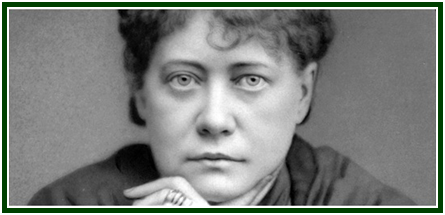* The theosophical wisdom has something in common with Zen: it is independent of whatever verbal formulations are made about it.
* No knowledge built in the world of words can replace the direct perception of, and harmony with, universal law.
* Obtaining wisdom depends on a course of self-training, self-purification and self-construction, to be implemented by each individual. True theosophy points to this fact, while childish theosophy keeps limited to the world of words and appearances.
* Reading is necessary, but it is not enough. That is why a master of wisdom indicates in the Mahatma Letters that the teachings of a higher level are given along the lines of Raja Yoga, whose pillars are self-knowledge, self-respect and self-control. Of course, Raja Yoga goes far beyond Patanjali’s aphorisms, which are, after all, just a book, albeit an extremely valuable one.
How One’s Central
Intention Organizes Karma
* In a certain passage of the Mahatma Letters, I believe, a Master of the Wisdom mentions that he might have to “change the direction of Karma”: in other words, make events evolve in a new direction, different from the previous one.
* When I first read the passage, I attributed the change in the course of Karma to the special powers possessed by Masters of the Wisdom. Many years later, I realized that the idea did not suggest necessarily the use of occult powers. All of us can “change the direction of Karma”. We do this, even if we are often not aware of the fact, each time we change our thoughts and actions.
* The student of theosophy has the privilege of asking himself:
* “What is the basic central factor, among thousands, that helps organize my Karma and establish the practical way it unfolds?”
* A calm analysis of the issue is more useful than hurrying to choose an answer.
The Different Layers of Purpose
* One of the decisive factors regarding how my Karma is organized is the nature of my central purpose in life. The way Karma organizes itself gives meaning and importance to the various facts and to the different intentions, to the satisfactions, sufferings, victories and obstacles that we all have.
* Such a central intention acts at different levels of consciousness, including spiritual super-consciousness (above thought), and instinctual sub-consciousness (below thought).
* One’s basic intention is vertical, and it is complex. It operates on the physical, vital, emotional, mental, and spiritual plane. This deep and multilayered motivation puts each fact in its place and gives a meaning to them all.
* Our task then is to observe, to alchemically purify, to elevate and strengthen our own basic purposes in life, because they direct Karma. Under certain conditions, a correct intention can produce varying degrees of bliss and serendipity. [1]
* Truthfulness is a key factor in theosophy, while falsehood is the main road to spiritual failure. What about the power of sincerity in the communities we live? Is the degree of truthfulness and good-will a factor leading to social regeneration? How can we improve the way we produce honesty in our lives?
NOTE:
000
The article “Thoughts Along the Road - 91” was published on the websites of the Independent Lodge of Theosophists on 14 December 2025. An initial version of it is part of the February 2023 edition of “The Aquarian Theosophist”, pp. 14-15.
000
Read more:
000
Print the texts you study from the websites of the Independent Lodge. Reading on paper helps us attain a deeper view of philosophical texts. When studying a printed text, the reader can underline sentences and make handwritten comments in the margins that link the ideas to his personal reality.
000
Helena Blavatsky (photo) wrote these words: “Deserve, then desire”.
000







